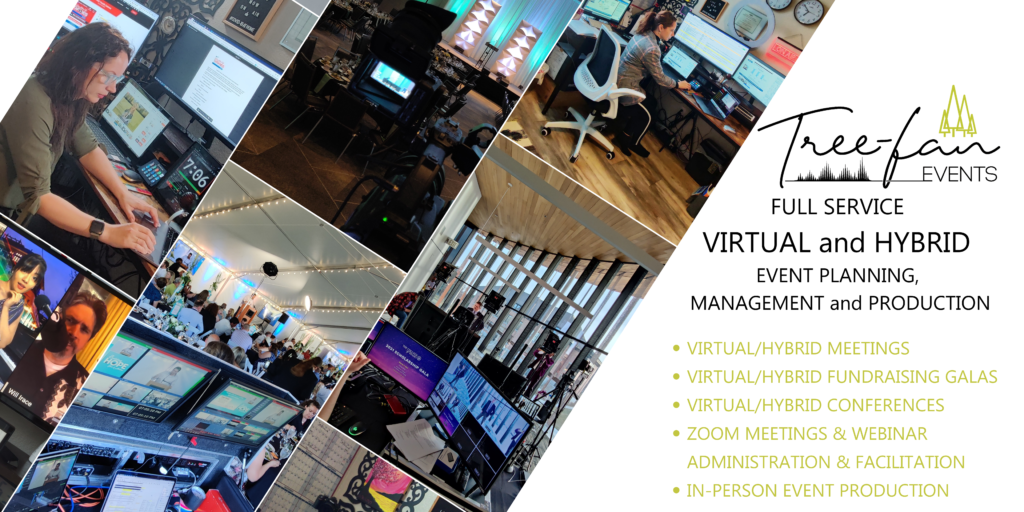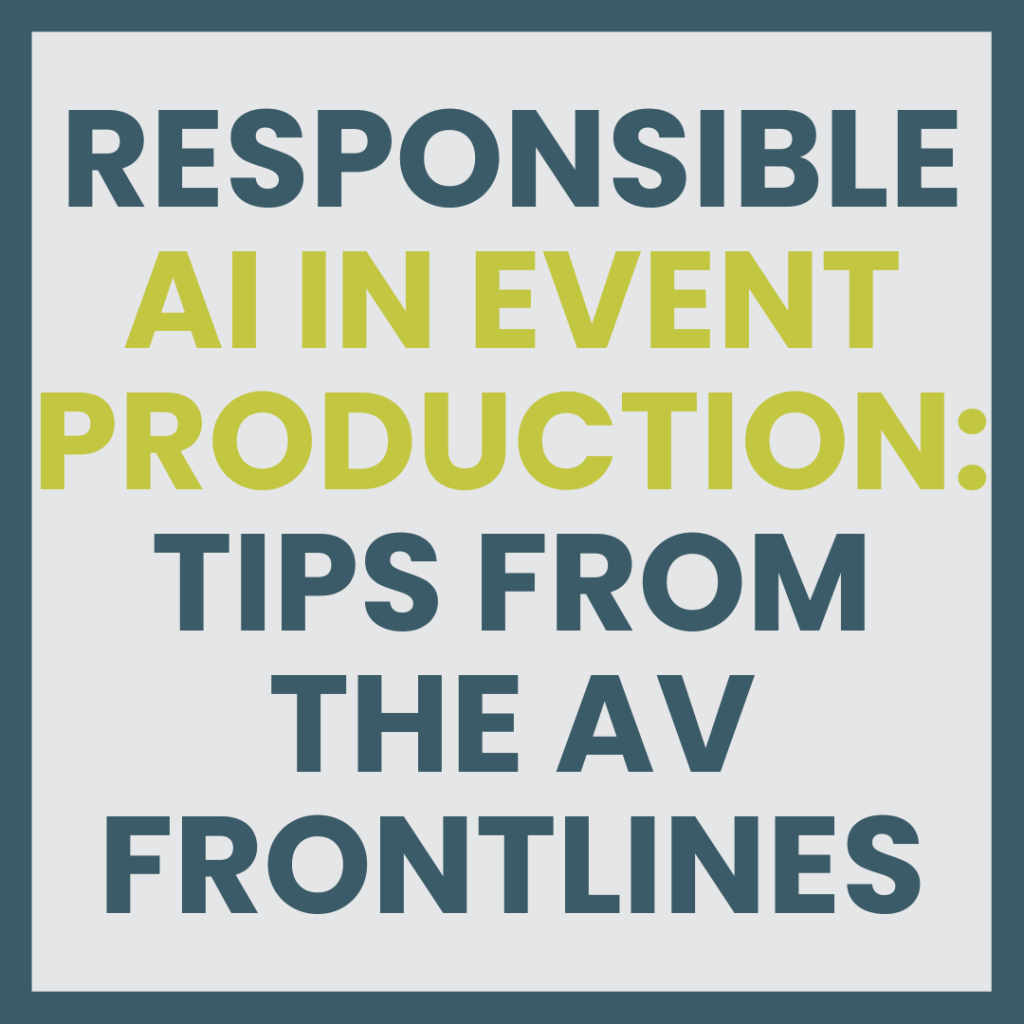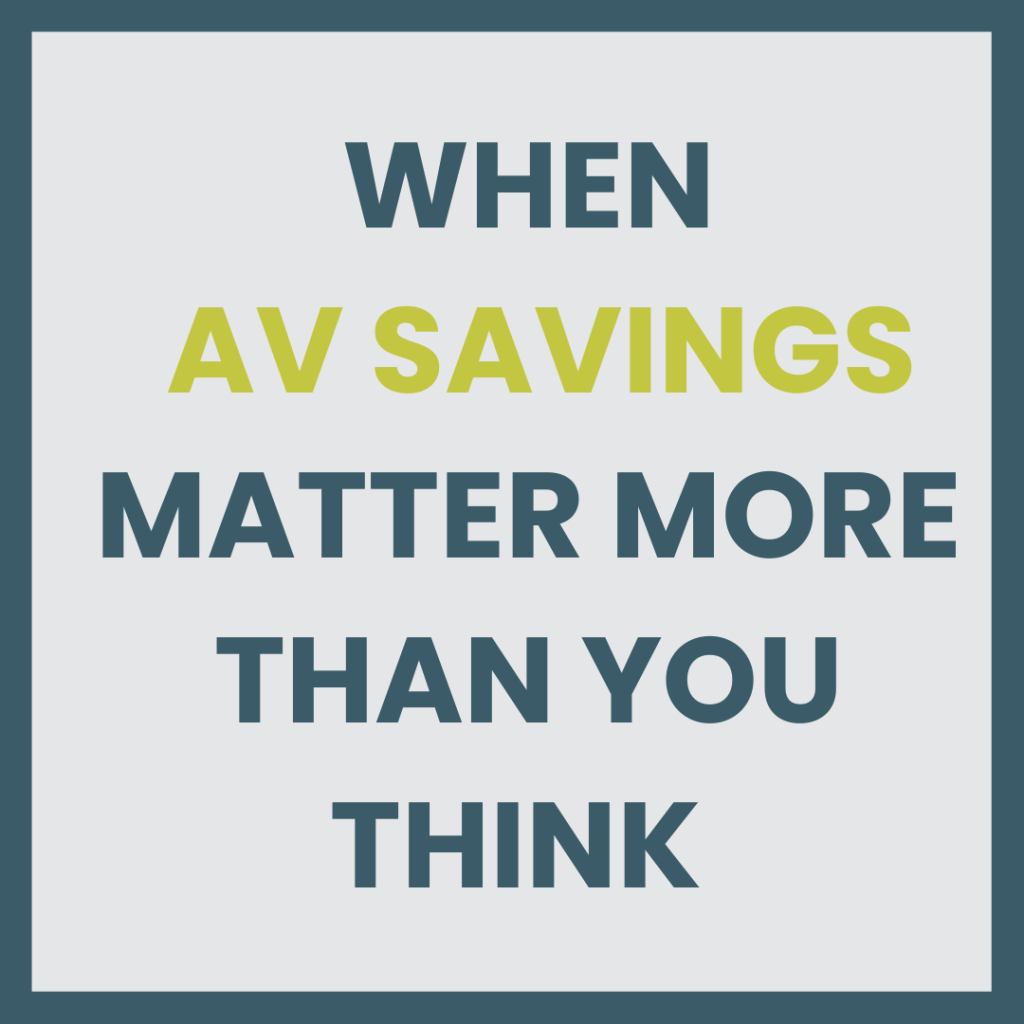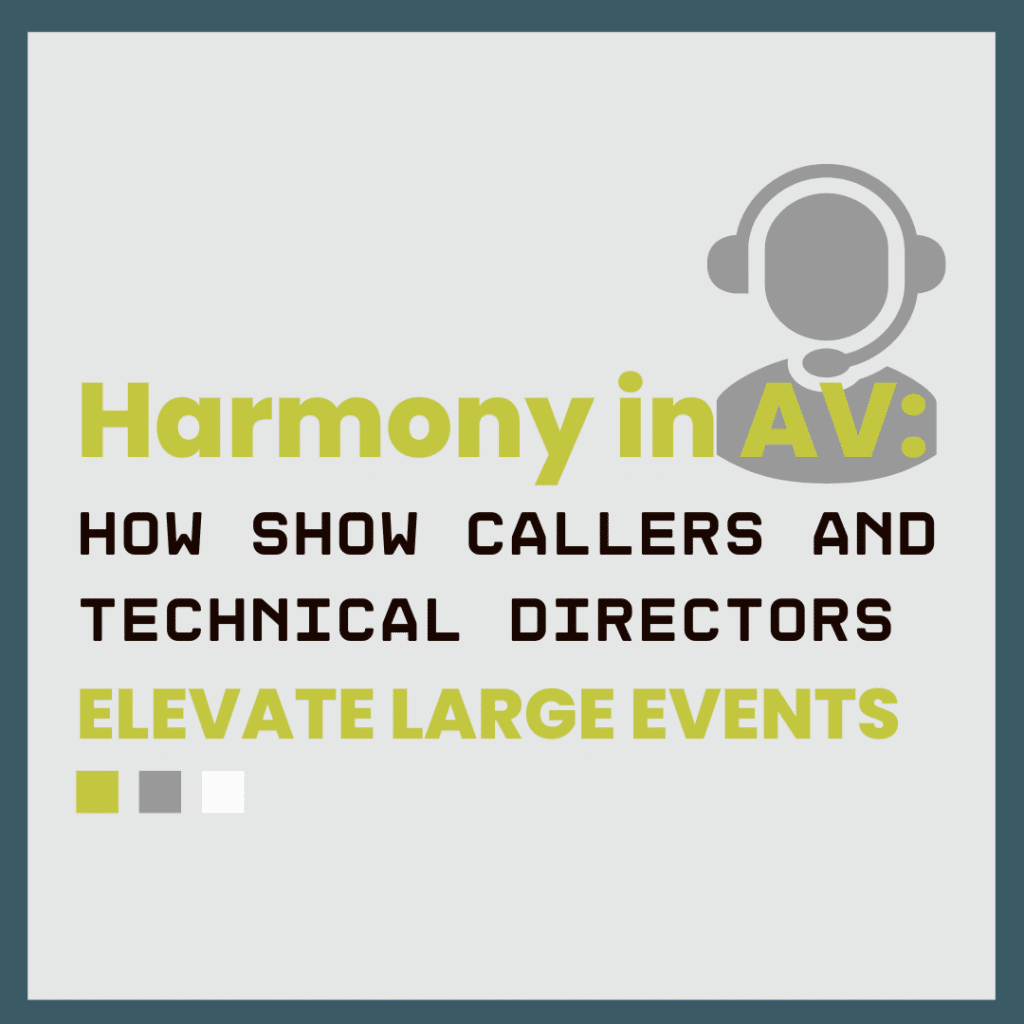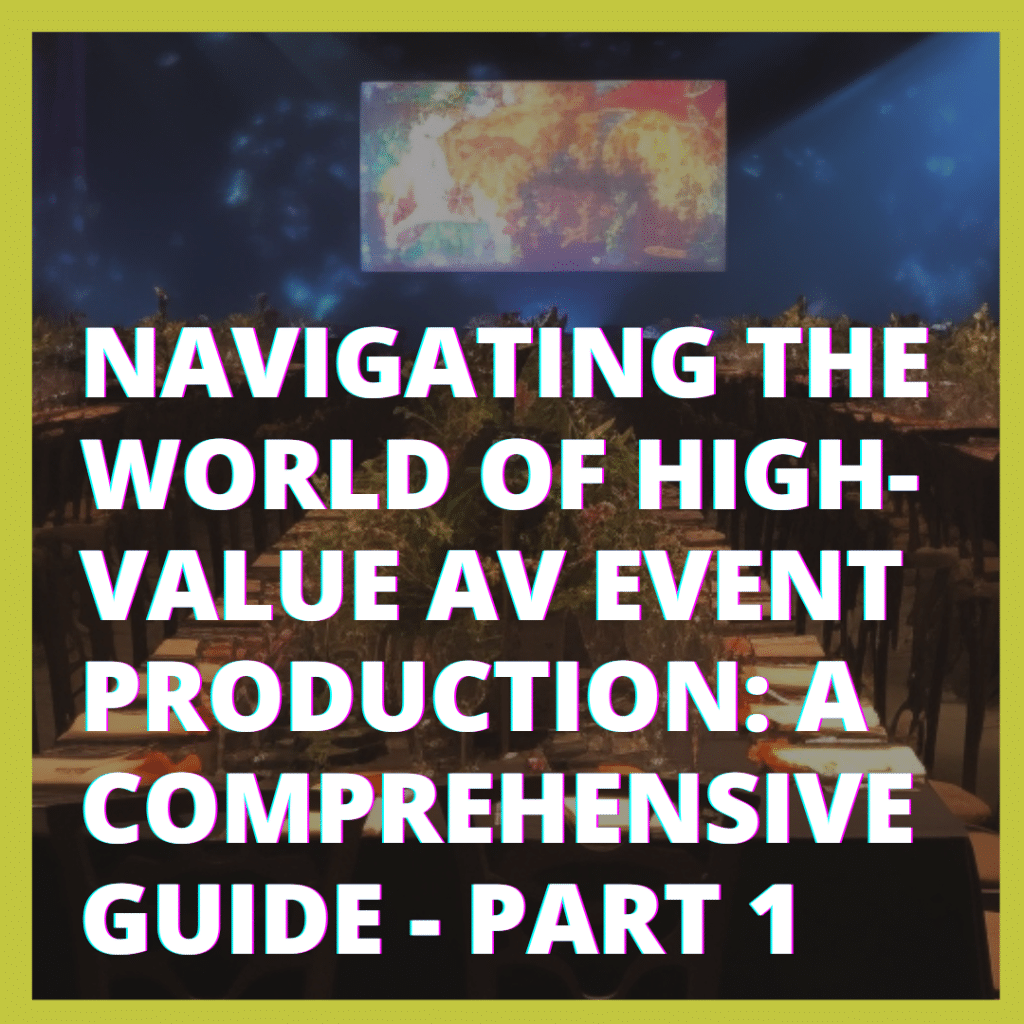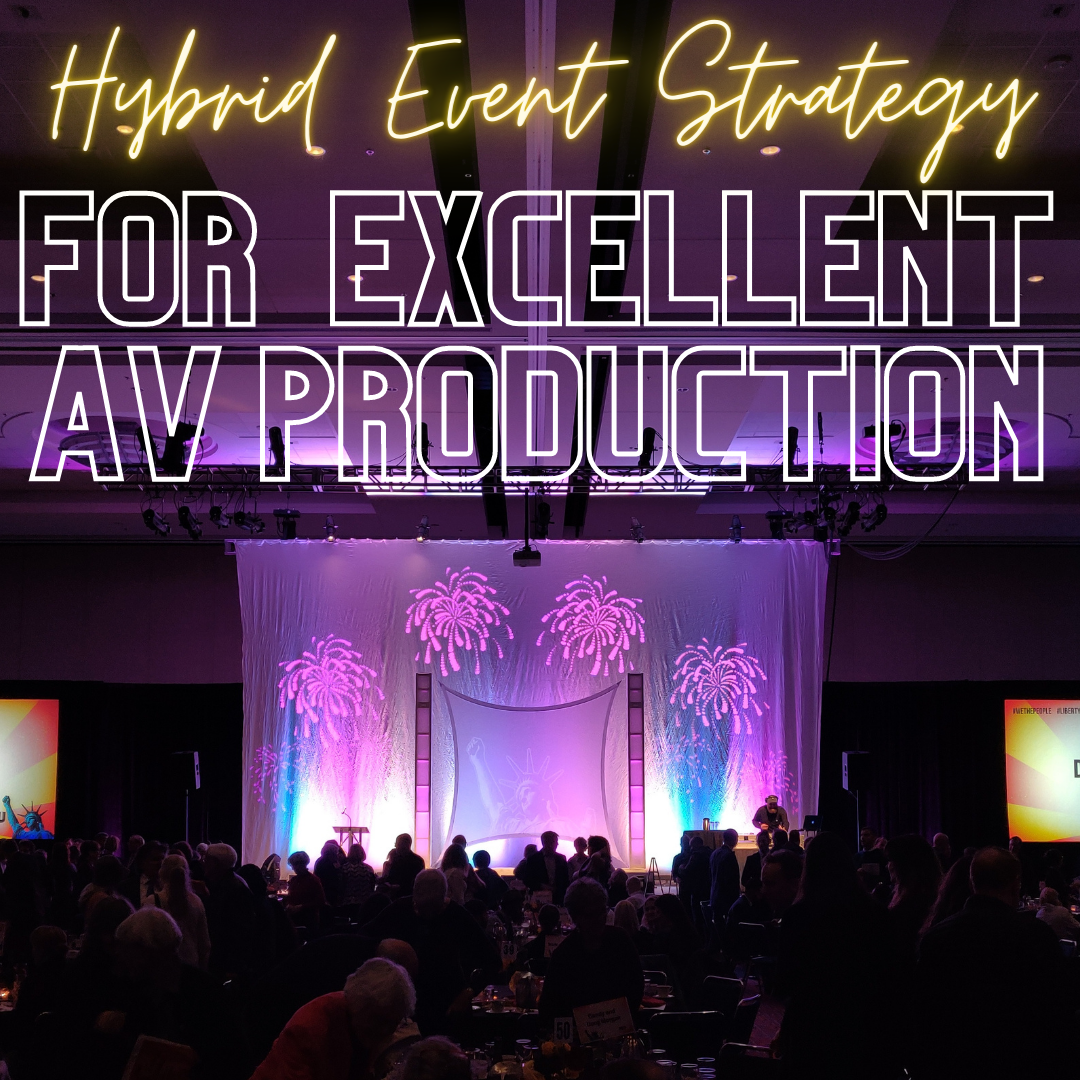
Hybrid Event Strategy to achieve excellent AV production
1. Have communication ready to share with attendees when things go side-wise
At in-person events, when things happen to go wrong, they’re more tangible and easy to address, for example, you can see if a room is not set according to the pre-planned layout, or if the buffet is missing a certain menu item, or if the AV is not set and tested properly, and so taking steps to fix it was much more straight-forward. 
With a virtual event, or a hybrid event in which you have the in-person event that has a virtual component, there are so many more variables that could change the attendee’s perception of the final end product, for example, their own internet speed, even browser choice, potential power outages, etc.
It’s important for an event organizer to consider these variables and fully prepare for common attendee issues and questions, including having the right verbiage in confirmation emails or on the event page, setting up a tech support number or email that can help mitigate most common technical issues related to registration, login links, browser cache, bandwidth problems, chat issues, etc.
Staying calm when things don’t go as planned and having a solid contingency backup plan at the ready in case you need it, is a must.
2. Partner with a solid AV production partner
During the past two years, it has brought to front and center the fact that the AV technology and production became more of the venue than just the logistics of planning and delivering an event, and so, it’s more important than ever in shaping and creating an experience that supports an organizer’s needs the best. Having the support of a technical event planner that you can trust to have your best interest in mind, and with whom you can explore the best strategies to accomplish your event’s objectives, and whom can bring on a trusted AV production partner that has the ability to provide the right people and the right gear to make the event happen, is more important than ever.
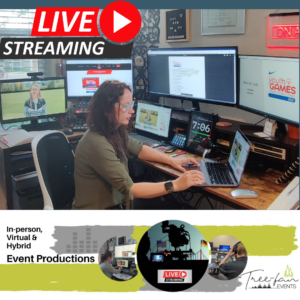 An expert technical event producer will lead you through the technical production process one step at the time, will be able to negotiate the AV proposal, create a Run Of Show, and break it all down line by line, create backups in place if things don’t go as planned, manage the technical event crew, as well as the attendee communications, follow a work-back schedule, execute speaker checks, schedule and run technical run-through, create graphic packages with ready-to-display vital communication messages, oversee all technical elements of the AV production pre-event, during the load in and setup stages, during the event and post-event —these are all processes that must happen for a show to go well, no matter the format.
An expert technical event producer will lead you through the technical production process one step at the time, will be able to negotiate the AV proposal, create a Run Of Show, and break it all down line by line, create backups in place if things don’t go as planned, manage the technical event crew, as well as the attendee communications, follow a work-back schedule, execute speaker checks, schedule and run technical run-through, create graphic packages with ready-to-display vital communication messages, oversee all technical elements of the AV production pre-event, during the load in and setup stages, during the event and post-event —these are all processes that must happen for a show to go well, no matter the format.
Too many event planners become overwhelmed by the idea of a hybrid event, and try to make direct comparisons between the elements of a virtual event and an in-person event, getting easily lost in inconsequential details.
Don’t stress about having to know every technical term under the sun, or every step in the process, partner with us and we will hand-hold you every step of the way!
3. Forget all about the AV bottom line
Another opportunity to create more room in your budget for a solid AV production and execution of your event is bringing on a Production Media Sponsor and create branded content that can be used across multiple platforms prior, during and post event.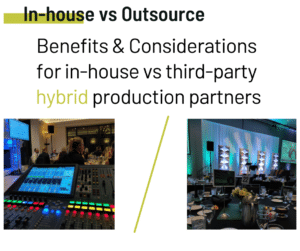
While charging for a virtual event has been frown upon for a long time now, if you create two different experiences that provide value, and market the benefits accordingly to each audience and what they might gain from attending either the in-person or virtual, you give your attendees options and allow them to decide which option is best for them, at different price points of course, and who doesn’t like to feel in control and have options?
Not having a hybrid option should NEVER be a choice.
We’d love to hear from you.
How are you rethinking your hybrid event strategy to achieve AV production excellence?
If you have any questions, let’s talk for 20 min and create a clear picture of what your event might need.


